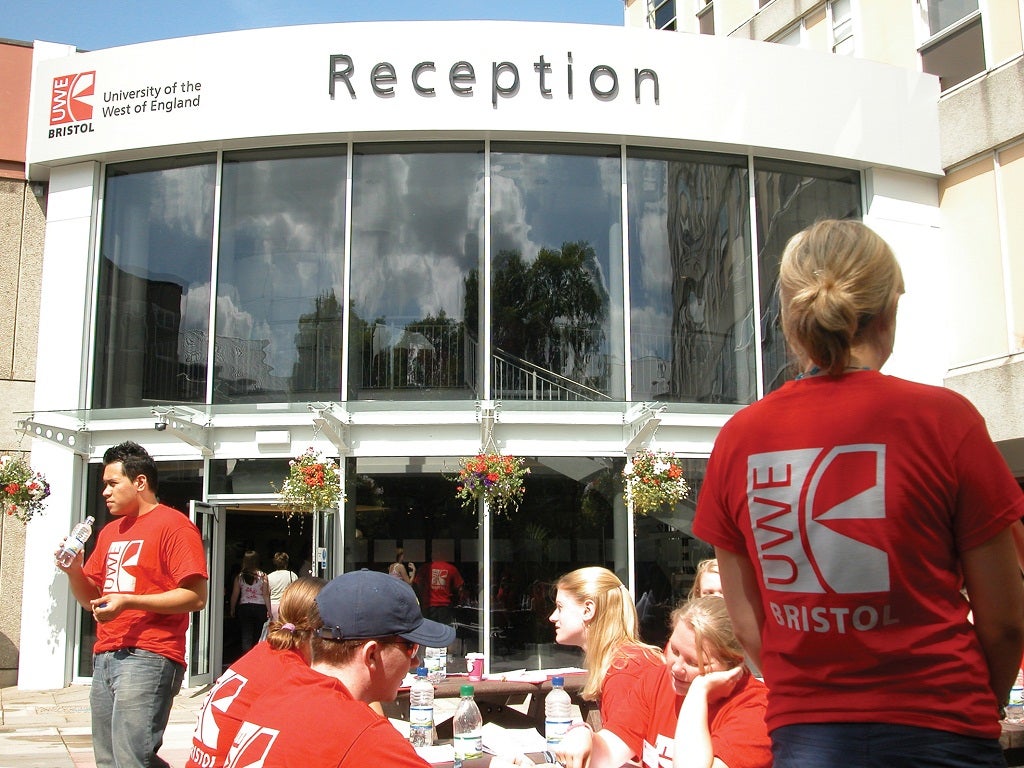
Your support helps us to tell the story
From reproductive rights to climate change to Big Tech, The Independent is on the ground when the story is developing. Whether it's investigating the financials of Elon Musk's pro-Trump PAC or producing our latest documentary, 'The A Word', which shines a light on the American women fighting for reproductive rights, we know how important it is to parse out the facts from the messaging.
At such a critical moment in US history, we need reporters on the ground. Your donation allows us to keep sending journalists to speak to both sides of the story.
The Independent is trusted by Americans across the entire political spectrum. And unlike many other quality news outlets, we choose not to lock Americans out of our reporting and analysis with paywalls. We believe quality journalism should be available to everyone, paid for by those who can afford it.
Your support makes all the difference.
Overall ranking: 53rd out of 123 in the Complete University Guide for 2015.
History: Began life as Merchant Venturer's Navigation School in 1595 and later merged with an art college to form Bristol Polytechnic in 1969. The 90s saw mergers with two health colleges before it became a university in 1992.
Address: Four campuses around Bristol, plus a land-based studies college at Hartpury, near Gloucester, and Health Education Centres in Bath, Gloucestershire and Swindon.
Ambience: Main campus at Frenchay five miles north of city centre is purpose-built. Glenside houses health and social care while the atmospheric St Matthias is home to humanities. Art, media and design students are in a rectangular glass structure at Bower Ashton. All students are given 24-hour access to library, computer and internet facilities and there are wifi zones in the main library.
Who's the boss? Professor Steve West, chair of the West of England Academic Health Science Network, is vice-chancellor.
Prospectus: 0117 328 3333 or request one here.
UCAS code: B80
What you need to know
Easy to get into? Can be tough. The average entry requirements across the university are 320 UCAS points or ABB at A-level. It accepts a wide range of other qualifications such as national diplomas and access courses.
Vital statistics: Very large with 26,000 students, 3,000 staff and about 18,000 undergraduates. One of the most highly rated of the new universities. Close links with business and industry offer the chance to put study into practice. One of the largest bursary schemes in the UK.
Added value: The campus doubled in size in 2008 and further major partnerships with Hewlett Packard and the BBC were drawn in 2011. UWE is investment central with £80m worth of student village and sports facilities, and since the mid-90s, a genomics lab, new science facilities, a £16m education block and new lecture theatres have all sprung up. There's an award-winning school of architecture studio building and the school of creative arts being redeveloped. A new £7.5m flagship sustainable building opened in September 2010, housing facilities for architecture and product design students. New accommodation has been built, while a new student union building will be opened in 2015. Other new facilities across the campuses include broadcasting suites, lecture theatres and UK's largest Robotics lab. Good graduate development programme, with input from a range of real-world employers. They now boast one of the largest paid internship schemes in the country.
Teaching: 70th out of 123 for student satisfaction with teaching in the Complete University Guide.
Graduate prospects: 51st out of 123 with 67.5 per cent finding graduate level employment.
Any accommodation? Yes. A host of accommodation on offer, including shared cluster flats with six people on average, shared houses with shared bathrooms, and town houses with eight to 12 people sharing. Expect to pay from £93 to £144 per week.
Cheap to live there? Depends where you choose to live. Flats within a three mile radius of the university will cost you from roughly £81 to £110 a week.
Transport links: Discounted bus services. London is 75 minutes by train. Bristol Parkway intercity station and the M4/M5 intersection are minutes from the main campus.
Fees: The university charges £9,000 a year for home and EU full-time undergrads, while overseas students pay £10,750.
Bursaries: A bursary of up to £2,000 in the first year of study is available for students with a household income of less than £25,000. Progression bursaries of £1,000 per year are available there after.
The fun stuff
Nightlife: Pulsing. Bars, bands, comedy and club nights on campus. Bristol is a musical city marked by big acts such as Roni Size, Massive Attack and Portishead. Head to the Students' Union on Tuesdays for Escape bar's The Lock In, with drinks offers starting from just £1 and going all night long.
Price of a pint: In Bristol, it's £2.90 on average.
Sporting reputation: Far from the worst- ranked 29th in the current BUCS league.
Notable societies: Student TV station UWEtube and radio station Hub Radio. Give paintballing, quidditch and pole-dancing a go here too.
Glittering alumni: David Hempleman-Adams, adventurer; Simon Shaw and Kyran Bracken, England rugby players; Dawn Primarolo MP.
Alternative prospectus: Discuss UWE with recent and current students on The Student Room to help you decide whether it's the university for you.
Join our commenting forum
Join thought-provoking conversations, follow other Independent readers and see their replies
Comments